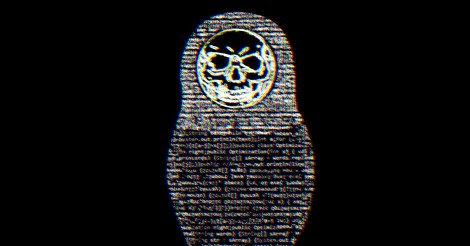Your podcast discovery platform
Curious minds select the most fascinating podcasts from around the world. Discover hand-piqd audio recommendations on your favorite topics.

piqer for: Globalization and politics Global finds
I am an Australian freelance journalist focussing on conflicts, politics, and warzones around the world. I have been working as a journalist for over 5 years, having reported from Australia, Germany, China, Egypt, Palestine, and Ukraine. I am especially interested in the way that new technologies are being used in conflict zones in unexpected and often disturbing ways. During my time working as a journalist, I also co-founded open-source war reporting site Conflict News.
The New Handbook For Cyberwar Is Being Written By Russia
In 2009, the US deployed what was probably the world's first ever cyber weapon: Stuxnet. Designed to disrupt and damage Iran's nuclear weapons program, the virus opened the proverbial Pandora's Box for cyberwar.
Interestingly, it also set a lasting precedent. Despite causing immense damage, the Stuxnet cyber attack did not invite retaliation by conventional means. Rather, it appears that cyberspace would remain a separate and lesser battlefield where real-world consequences were much lower.
Now fast forward almost a decade, and things are starting to look very different.
While the US likely remains one of the most powerful cyberwarfare forces in the world, it is Russia that it pulling many of the hardest punches. The country has built up an army of skilled hackers who have been engaging in ever more malicious attacks around the world. Estonia, Georgia, and Ukraine all began falling victim to cyber attack the moment they invoked Russia's ire.
The US too soon found itself the target of Russian hackers, with many suggesting they may have directly tried to influence the 2016 US election.
What is clear is that Russia is deliberately upping that ante. It is attempting to see how far it can push the boundaries of cyberwarfare without starting a 'shooting war'. Indeed, as Sheera Frenkel's detailed article for BuzzFeed News shows, this boundary is disturbingly wide. But with tensions rising between Russia and the West, the likelihood of a dangerous mistake of judgment is higher than ever.
Knowing this, this article is an important read, not just as a valuable insight into a seemly invisible war, but also as a warning that the next major international crisis might not be pre-empted by a physical or diplomatic confrontation, but rather a digital one.
